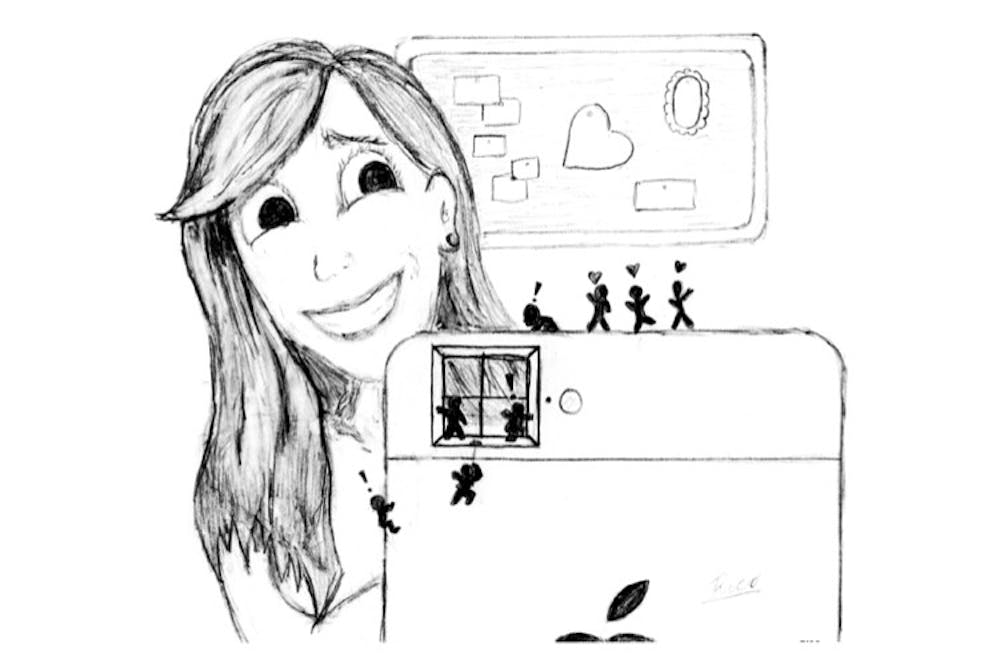Everyone knows that as soon as you create an account anywhere online, there’s a danger of having everything in your life taken from you by a teenager in an internet café somewhere. Somehow, that fear isn’t enough for me to take an active, defensive stand when it comes to my cyber-privacy. Perhaps part of the reason for that is that I’m okay just hoping I don’t get unlucky; or perhaps I have no idea how to set up those kinds of defenses.
There is, however, one piece of personal technological property which many people possess and likely feel very strongly about protecting. Them naked selfies, yo.
A Wired survey from 2009 found that one-third of students sent a nude photo of themselves at some point during college, a number that has likely gone up with the proliferation of smart phones and Snapchat. Taking a nude selfie is a unique kind of privacy risk. If your credit card is hacked, you can likely recover the money. Passwords can be reset, Facebook accounts reclaimed. Once a nude photo is posted publicly, however, one cannot make anybody unsee it. The recent hacking and dissemination of several female celebrities’ personal, “intimate” photos made this all a national story, but there is a question underlying the issue which isn’t really being talked about: is it bad to send somebody naked pictures of yourself? (It must be stated that this whole discussion is referring only to exchanges involving persons 18 years or older.)
That is different than asking, “Is it smart to send naked pictures of yourself?” — a question which, given what we discussed in paragraph one, can pretty much be answered “no.” But let’s set aside the vulnerability of any and all digital information in the cloud era (whilst pretending we know exactly what that means). There seems to be an implicit judgment surrounding the recent coverage of this issue. Ask yourself, would you tell a group of friends that you sent nude pictures of yourself to a girlfriend or boyfriend? How about a group of classmates? What about a picture of you in your underwear?
Perhaps asking whether or not you’d broadcast that information to a bunch of people isn’t the best way to illustrate this point. Still, what is there about sending a revealing selfie that warrants shame? The decision to let anybody see you naked is a distinctly personal one and should be free of external judgment. Whether you bare it all in person or via telecommunication is just as much your business as who you let see your business.
I admit that in all issues pertaining to sexuality, the male perspective is imbued with a power and exemption that undoubtedly affects my opinion on this. Nobody should ever be pressured to send or post revealing pictures of themselves, by strangers on Instagram or by a significant other. But there also shouldn’t be any shame in how one decides to share their body. If you hop out the shower feeling sexy, and you trust the recipient, there is nothing implicitly wrong with snapping that pic.
It shouldn’t be news that our society has deeply perverse problems when it comes to sexuality, especially regarding the female body. Within a few hours of the personal photos of Kate Upton, Jennifer Lawrence and others hitting the internet, the FBI was working to identify the hacker. The next week, ESPN and many other media outlets were playing the video of Ray Rice knocking his then fiancée (now wife) unconscious pretty much on repeat. I do not in any way mean to belittle the violation perpetrated against those celebrities, or anybody who has had intimate photos stolen, but what about Janay Palmer’s privacy? Plenty of public figures denounced the posting and viewing of those photos, but nobody stood up for Ms. Palmer’s right to not have open public access to footage of her being beaten by her fiance. When one considers this as an example of the degree to which we are desensitized to violence against women, the unauthorized dissemination of personal photos by hackers and entrusted recipients alike should not come as a surprise.
Nonetheless, people send nude photos and there’s little evidence to suggest they will stop. In a Sept. 5 New York Times article, Farhad Manjoo argued that cell phone companies should start embedding technology to detect and encrypt nude photos. A phone could make an image password protected, such that recipients could only view them with (revokable) permission, or it could prevent sensitive images from being backed up via cloud. Initially my reaction was laughter: it’s on phone companies to make it easier to send nudes? Maybe not. But it is their responsibility to protect their clients’ privacy. People have demonstrated that they want to use their phones in this way, and there’s nothing criminal, or even immoral about sending a revealing picture. The immorality lies in the stealing and spreading of those photos, and it is unfortunate that our lack of respect for each other’s bodies forces us to rely on cell phone makers.
Artwork by RICO
LUKE SMITH-STEVENS '15.5 is from New York, N.Y.




